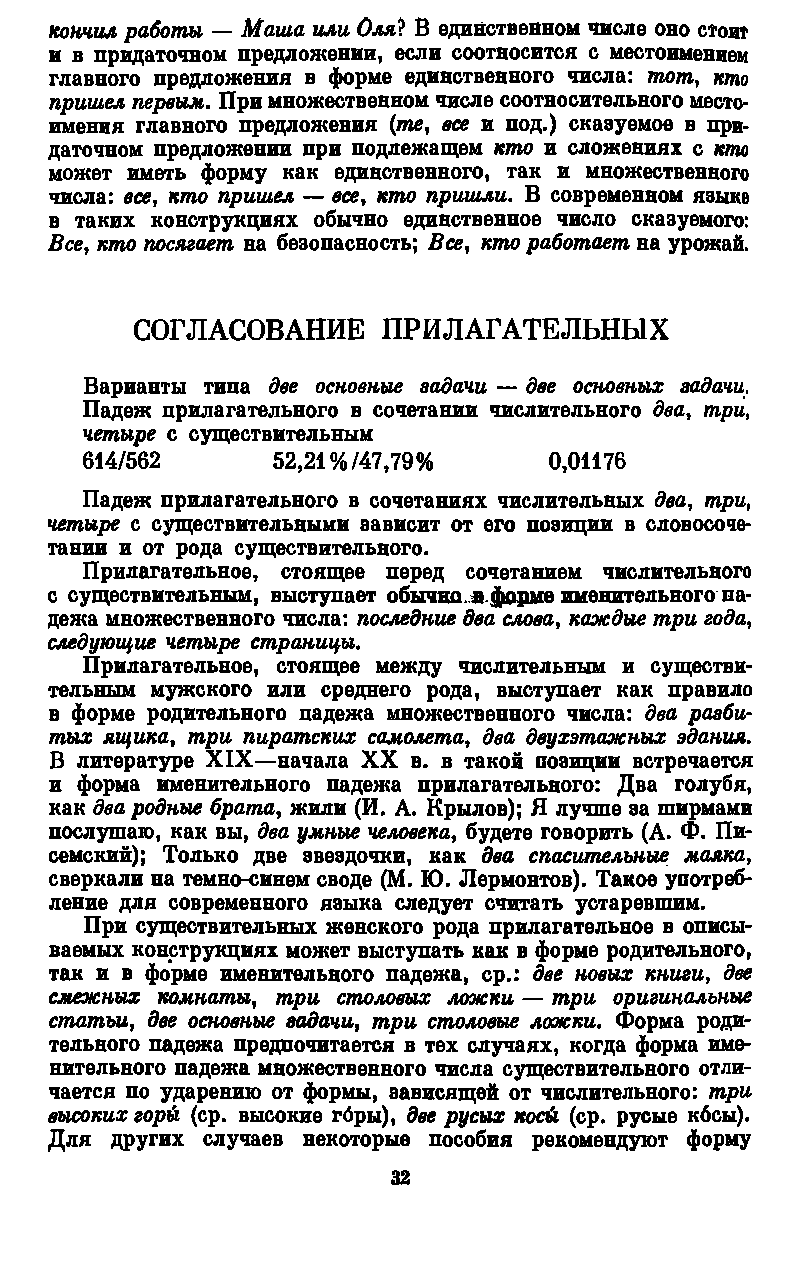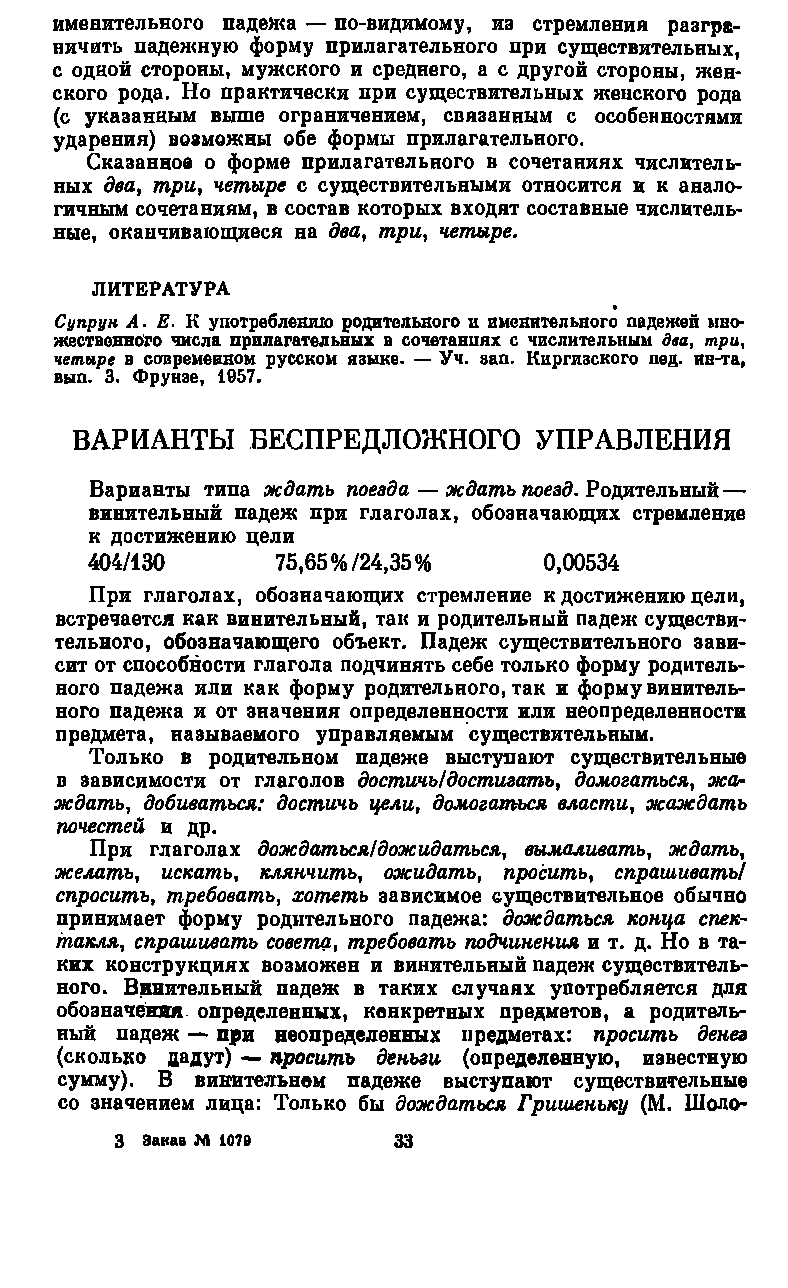While trying to augment my knowledge on Russian numerals with regard to how they combine with nouns and adjectives, I paid a visit to Reverso after learning that any adjectives placed between the numeral and the noun must be
in the genitive plural if the singular form of the noun is masculine or neuter
and
in the nominative plural if the singular form of the noun is feminine.
Source: ТРОЙКА, section 15.2, p. 486
Side Note: If you cannot access the link above (where you'll have to click "Next" a few times before you get to the correct page), the following is also from the book (although I added a few personal touches to enhance the learning process):

Side Note: For those of you who have yet to learn this, it may help you to know that rules of animacy do not apply to this rule because rules of animacy only apply to the accusative case in Russian. The rules listed at the top of this post refer to numeral-noun phrases in the nominative case.
However, while going through sentences at Reverso, looking for good examples, I kept coming across combinations that confused me because they did not seem to be adhering to the rules I placed at the top of this post. Here are some examples:
Три маленьких бабочки смотрят на тебя.
Three little butterflies looking at you.Потому что у меня есть три маленьких буквы для тебя.
Because I've got three little letters for you.
Initially, I thought that I might have just stumbled upon a couple of less than standard translations at Reverso, but then I went to search Russian web pages via Google's search engine. (Initially, I tried Google's Ngram, but this didn't yield anything.) What I discovered, via a search of Russian web pages, somewhat surprised me. Though there was clearly more evidence of these types of constructs according to the rules I laid out above there was still quite a few that did not seem to be following it. See the image below for the details:

After thinking about this a bit more, I see now that the numbers for "три маленьких буквы" quite possibly indicate the use of the accusative case.
This made me rather curious, so I returned to the Ngram and ran a few other searches. You’ll find visual representations of those searches below:

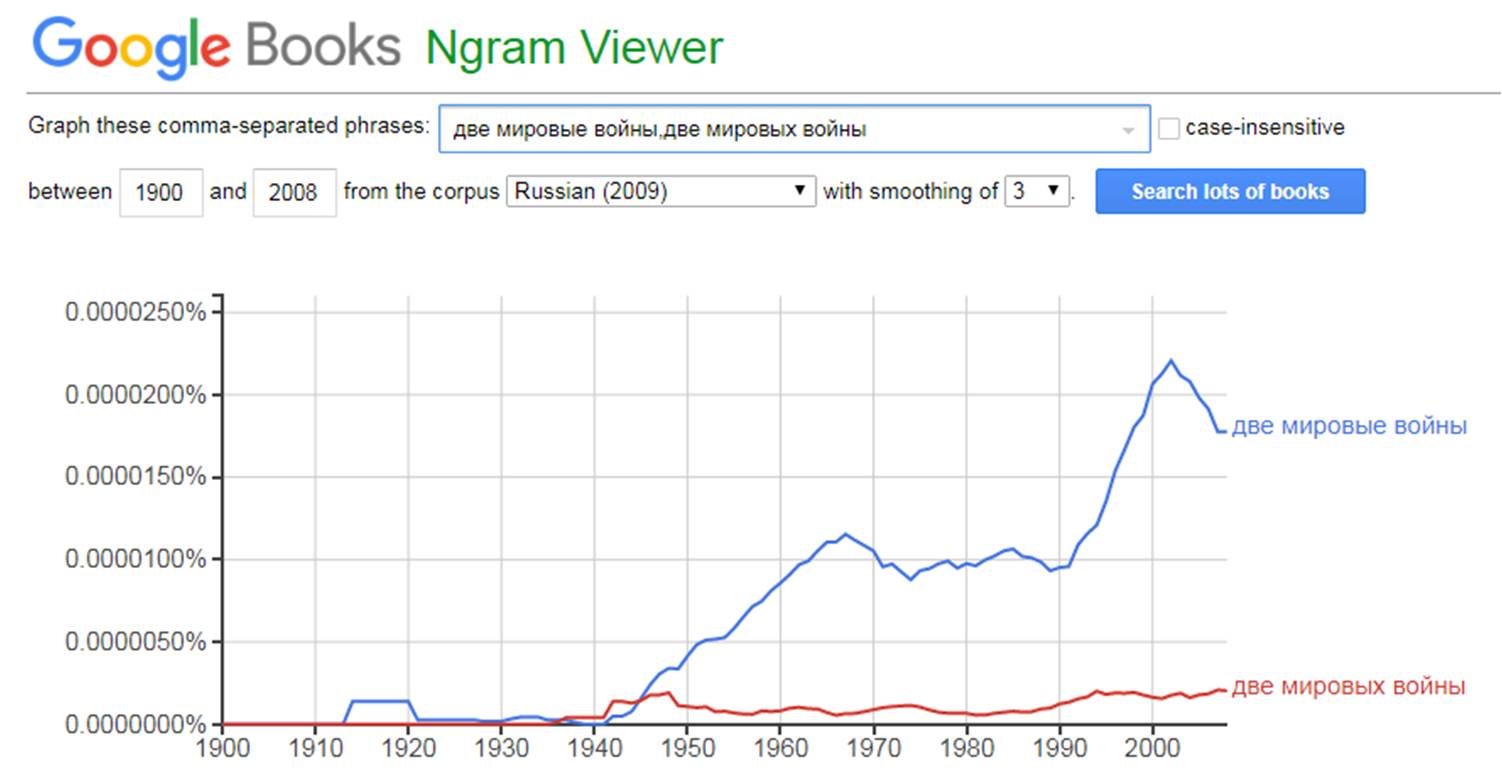
As you can see, the searches involving masculine or neuter nouns were quite consistent, but not so with the feminine noun — война. Is this presence of using genitive plural for the adjective between a numeral and its noun (as in “две мировых войны) just an indicator of bad writing (somewhat implausible) or is something else going on? If the noun “война” were an animate noun, I suppose one could make a case that instances of “две мировых войны” must be examples of where it is in the accusative case, but it is my understanding that only things like people and animals are considered “animate” and wouldn’t “два” then take the form of “двух” (instead of “две”)?
Regardless, what I found via searches seems to contradict what I now have come to understand about this rule and have seen echoed in a similar post:
Numerals changing the case of adjectives and nouns
Here’s a screenshot of the part that is germane to this post:
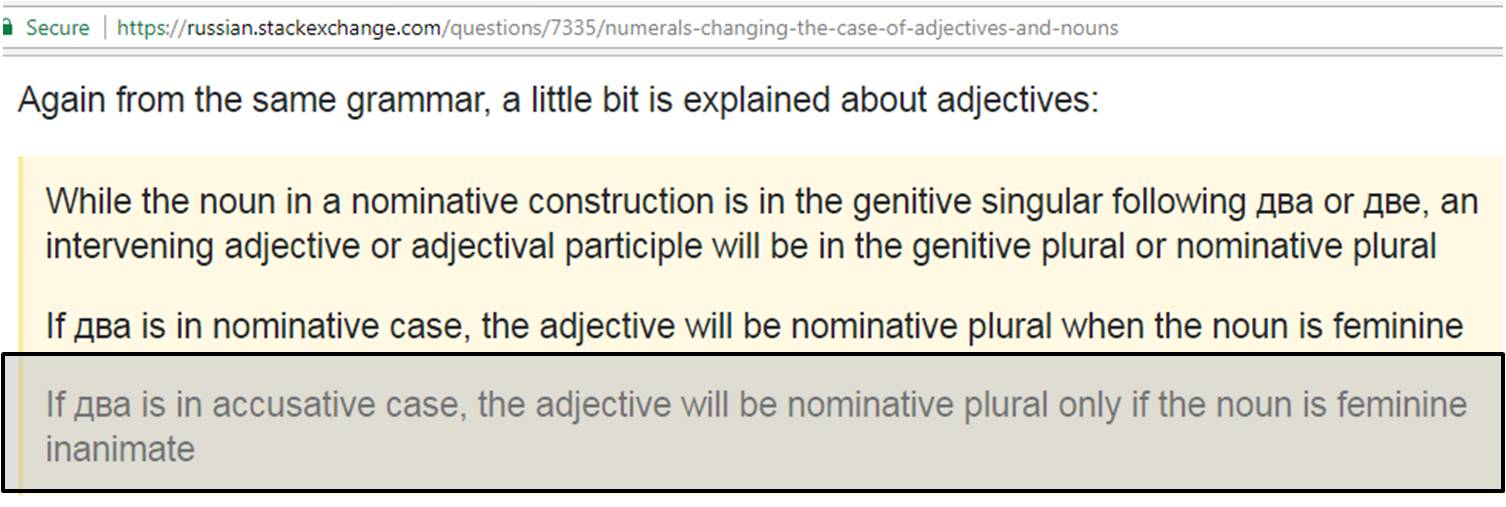
As an aside, wouldn’t “два” then be “две” if the noun was feminine (regardless of whether it was in nominative or accusative case)? I guess it’s possible that whoever wrote it is just using “два” in its default/base form. Regardless, the rule seems to correspond with what I find in one of Wiktionary’s declension charts. Here’s an annotated screenshot so you can see what I mean:
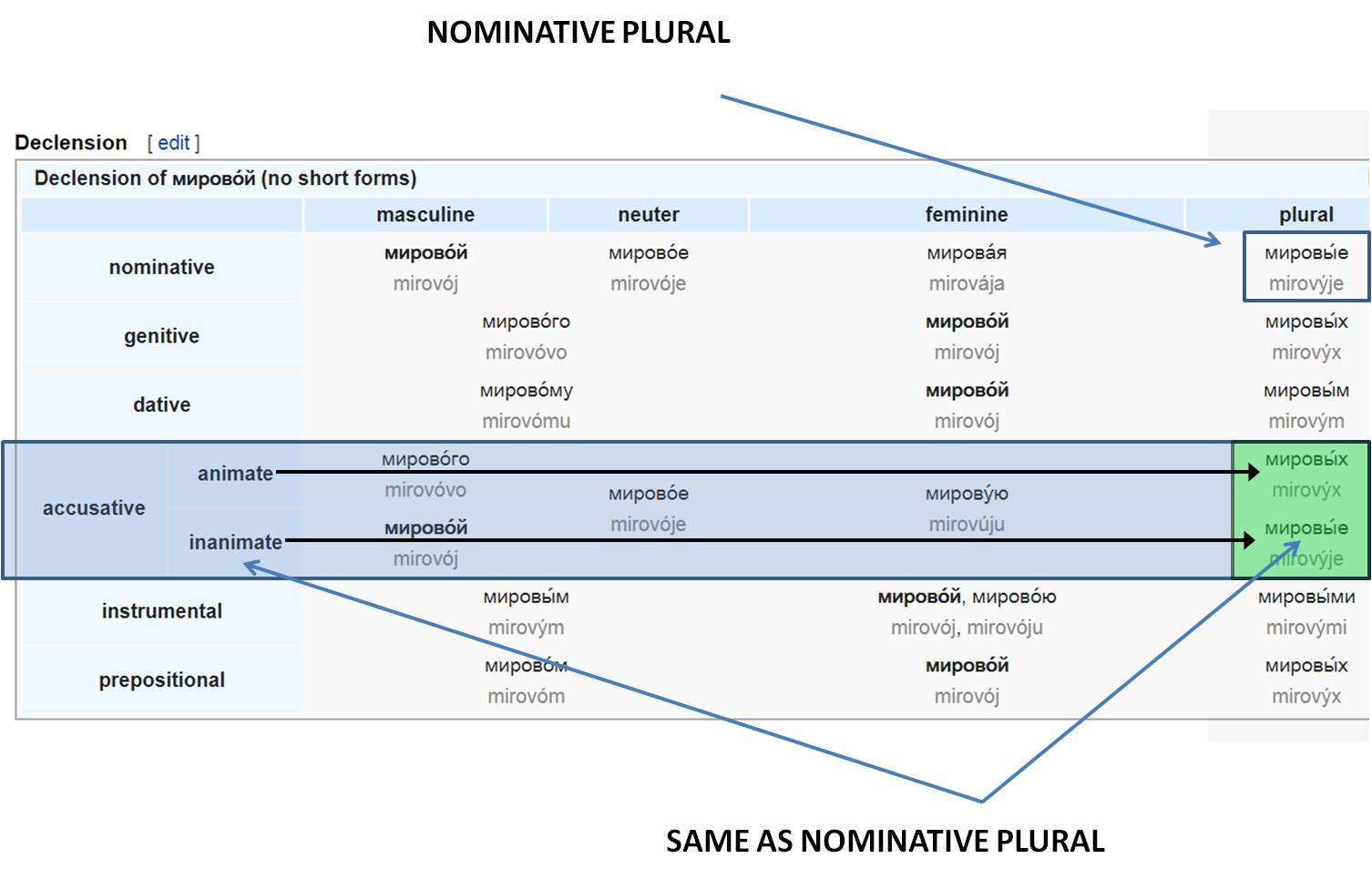
This declension chart seems rather similar to other charts I’ve seen — where “ые” is listed for the nominative plural and accusative inanimate plural and “ых” for genitive, prepositional, and accusative animate plural.
I’ve added the declension chart for “два” to assist with understanding:
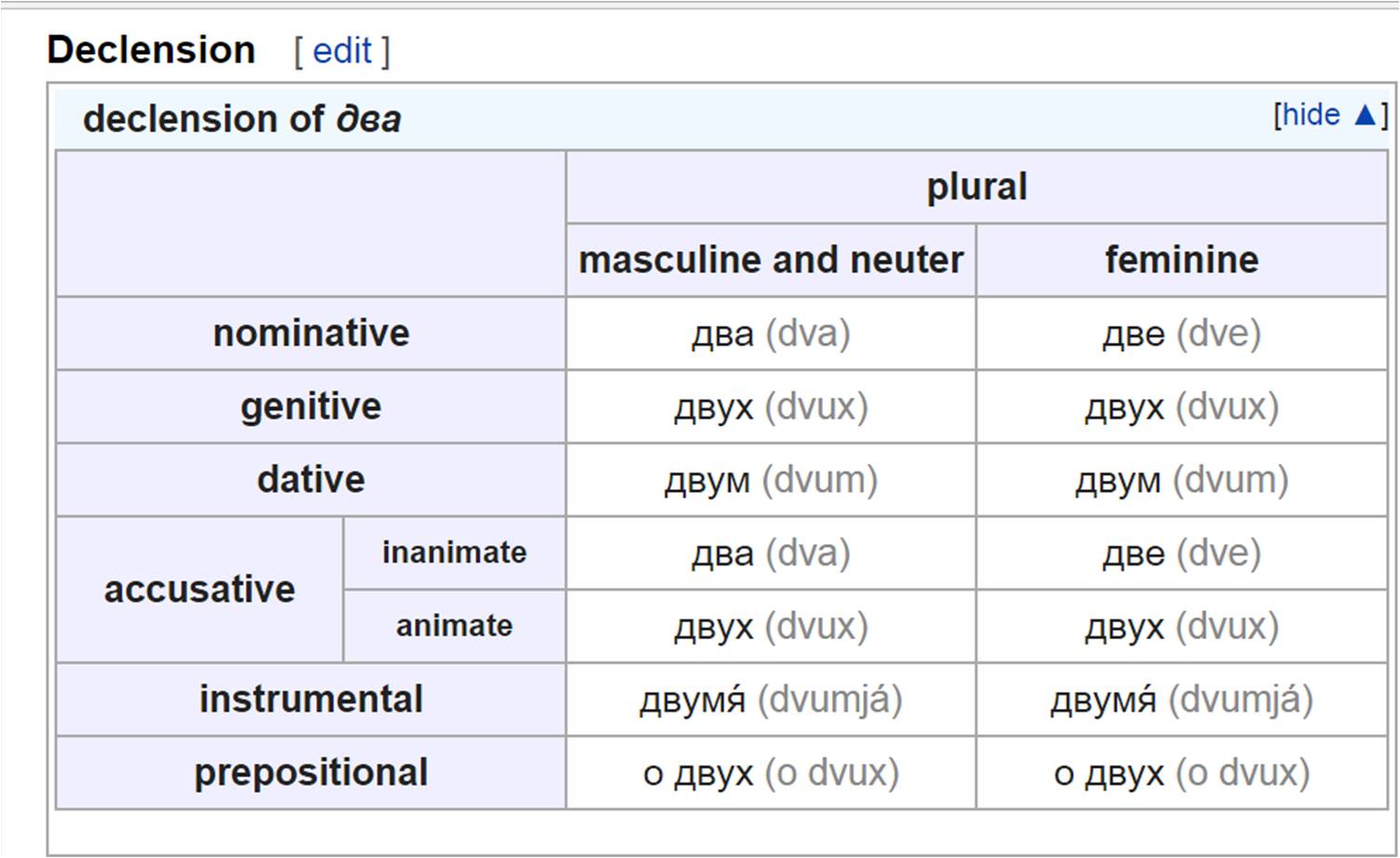
It doesn’t help that the rows for “animate” and “inanimate” have been flipped — in the chart for “мировой” “animate” is listed before “inanimate.” In this chart, you have the opposite, but I hope it helps just the same.
As for the feminine noun example I used earlier:
две мировых войны
две мировые войны
another theory I have is that this is perhaps some sort of intentional literary style intended to, perhaps, make some sort of statement about the “animacy” a war may have. Or am I way off base there? Another theory is that at one time it was acceptable to use “две мировых войны” for the genitive case (instead of "двух"). But wouldn’t you then have to change “войны” to “войн”? Would love to have your thoughts on this.
At this point in my inquiry, I decided to stop speculating and just post this question here to see if anyone might have an answer.
Just to recap in more general terms, are these patterns I've observed due to any recent changes in the Russian language or is it more due to the differences that tend to develop between formal writing and less formal writing? Or are they just mistakes/flukes/anomalies that a beginning student shouldn’t pay attention to?
BTW, I have visited the following:
Five + adjective + noun — what case is adj in?
Numerals and cases - why in this sentence the adjective is in plural form?
Numerals changing the case of adjectives and nouns
Agreement of numerals, adjectives and nouns
and even
Двадцать один хорош(?) год - declension after number 21
but none of them really seem to address my latest point(s) of confusion about the Russian language.
As always, thanks in advance for sharing your knowledge on this topic. Please cite a source(s) in your answer, if it makes sense to do so and it is not too inconvenient.
